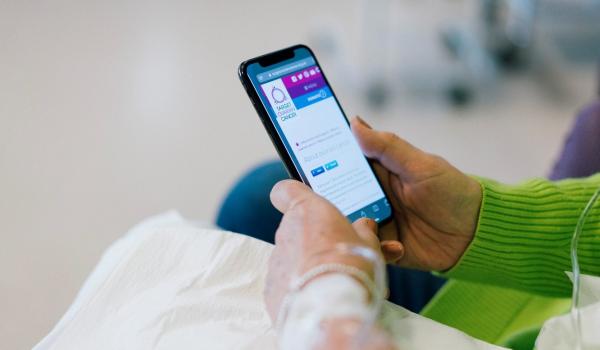Evaluation of the safety of cediranib in the prevention of bowel perforation in platinum-resistant ovarian cancer
Who can take part
Please note - unless we state otherwise in the summary, you need to talk to your doctor about joining a trial.
You may be able to take part in this clinical trial if you have:
- ovarian cancer that has spread to your tummy (abdomen) and doctors think that you are at risk of bowel obstruction (blockage of the bowel)
- cancer that is platinum resistant of refractory (this means the cancer progressed within 6 months of having had platinum chemotherapy or it didn’t respond to platinum chemotherapy)
- at least 1 area of cancer that can be seen and measured on a scan and doctors must think that the chemotherapy drug paclitaxel is a suitable treatment for you.
You are not eligible to join the trial if you are going to have Avastin® (bevacizumab) maintenance treatment.
This is not an exhaustive list. If you're interested in participating in a clinical trial, you should speak to your doctor about what other criteria might apply.
About the trial
The main purpose of conducting the trial is to:
- determine the safety of combining cediranib, a VEGF inhibitor, with paclitaxel a weekly chemotherapy regime
- find out how well the treatment works in terms of shrinking the cancer and preventing bowel obstruction.
If the cancer responds to this treatment then after the course of paclitaxel is finished the woman can continue on cediranib alone. If the cancer progresses (gets worse), then treatment can be changed to the PARP inhibitor olaparib.
The drugs being used in this trial are:
- Paclitaxel – a standard chemotherapy drug given as a weekly infusion.
- Cediranib – a tablet taken once a day. It is a VEGF inhibitor. VEGF is 'vascular endothelial growth factor' – a chemical that tells the cancer cells to make blood vessels, so that the cancer cells can get nutrients and grow. Cediranib blocks the signals of VEGF.
- Olaparib – a tablet taken twice a day and is a type of drug called a PARP inhibitor. PARP is short for Poly (ADP-ribose) polymerase. It is a protein that helps damaged cells to repair themselves. Olaparib stops PARP working. Cancer cells with an error in the BRCA gene rely on PARP to keep their DNA healthy. Recent trials have shown that the addition of cediranib to olaparib increases the effectiveness of olaparib even when a genetic mistake in BRCA is not present. Those treated with olaparib will have their genes tested for the BRCA genetic error by a blood test.



